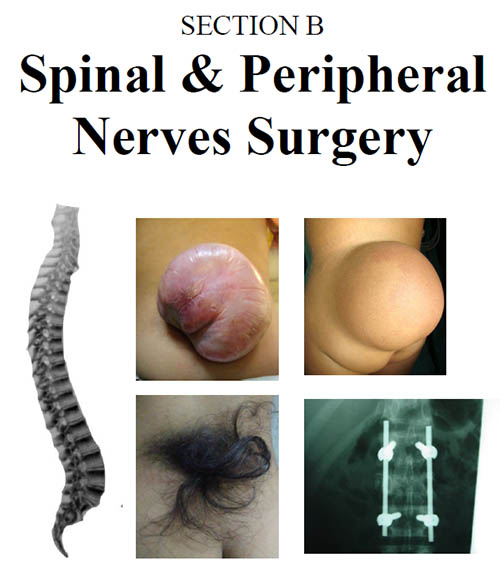Factors Affecting Decision Making Process on Spine Surgery: Patients’ Perspective
DOI:
https://doi.org/10.36552/pjns.v24i2.445Keywords:
Spine surgery,, Disability, Conservative, Emotional StateAbstract
Objective: To determine the factors that affects the decision making process of the spine surgery from a patient’s perspective.
Material and Methods: The study was carried on 264 patients admitted for spine surgery in the Department of Neurosurgery, Khyber Teaching Hospital, Peshawar, Pakistan. Data was collected from patients on questionnaire using a Likert scale. Reliability was ensured by Cronbach alpha.
Results: The results for regression analysis revealed that there is a significant negative relationship between previous experiences and decision for spine surgery in patients (? = -0.156, p = 0.001 < 0.05). There is a significant positive influence of emotional and social state (? = 0.193, p = 0.002), information & counselling (? = 0.097, p = 0.011), socioeconomic status (? = 0.131, p = 0.004), severity of disability (? = 0.602, p = 0.000), ineffective conservative treatment (?9 = 0.082, p = 0.013) and intensity of pain (? = 0.527, p = 0.000) on decision for spine surgery in patients. The independent variables, including physical health, gender role and age were found to have an insignificant effect on the decision for spine surgery (p > 0.05).
Conclusion: It is concluded that the factors affecting the decision of patients on spine surgery included previous experience, emotional & social state, information & counselling, socioeconomic status, severity of disability, ineffectiveness of previously taken conservative treatment and intensity of pain.
References
2. Lam WW, Loke AY. Factors and concerns of patients that influence the decision for spinal surgery and implications for practice: a review of literature. Int J Orthop Trauma Nurs. 2017; 1 (25): 11-18.
3. Andersen SB, Birkelund R, Andersen MØ, Carreon LY, Coulter A, Steffensen KD. Factors affecting patient decision-making on surgery for lumbar disc herniation. Spine. 2019; 44 (2): 143-149.
4. Kim HJ, Park JY, Kang KT, Chang BS, Lee CK, Yeom JS. Factors influencing the surgical decision for the treatment of degenerative lumbar stenosis in a preference-based shared decision-making process. Eur J Spine, 2015; 24 (2): 339-347.
5. Kløjgaard ME, Manniche C, Pedersen LB, Bech M, Søgaard R. Patient preferences for treatment of low back pain—a discrete choice experiment. Value in Health, 2014; 17 (4): 390-396.
6. Kurd MF, Lurie JD, Zhao W, Tosteson T, Hilibrand AS, Rihn J, Albert TJ, Weinstein JN. Predictors of treatment choice in lumbar spinal stenosis: a SPORT study. Spine, 2012; 37 (19): 1702-1707.
7. Hair JF, Black WC, Babin BJ, Anderson RE. Multivariate data analysis. 7th ed. New Jersey: Prentice Hall, Upper Saddle River; 2010.
8. Sigmundsson FG, Jönsson B, Strömqvist B. Determinants of patient satisfaction after surgery for central spinal stenosis without concomitant spondylolisthesis: a register study of 5100 patients. Euro Spine J. 2017; 26 (2): 473-480.
9. Sure A, Tishelman JC, Moon J, et al. Patient reported satisfaction and its impact on outcomes in spinal surgery: a mini review. Ann Clin Lab Res. 2016; 4 (3): 1-4.
10. Mazur MD, McEvoy S, Schmidt MH, Bisson EF, Boos N. Spinal Disorders. J Neurosurg. Spine. 2018; 22: 1165

Downloads
Published
Issue
Section
License
The work published by PJNS is licensed under a Creative Commons Attribution-NonCommercial 4.0 International (CC BY-NC 4.0). Copyrights on any open access article published by Pakistan Journal of Neurological Surgery are retained by the author(s).












